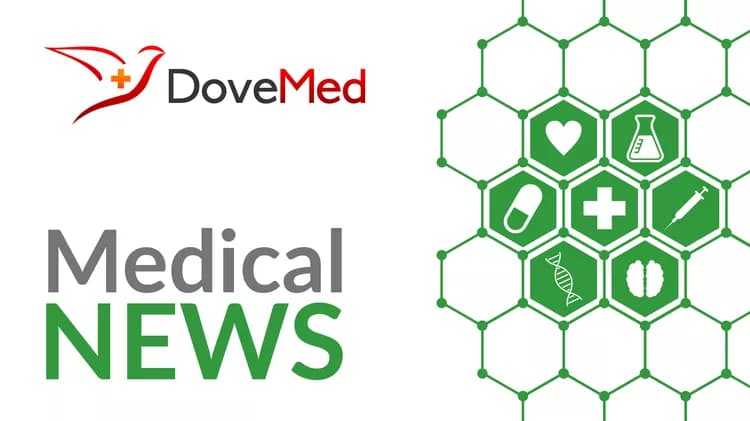
Transfer Of Ageing: New Drug Class Prevents Key Ageing Mechanism In Organ Transplants
(18 September 2023, Athens, Greece) A novel study has shown that Senolytics, a new class of drugs, have the potential to prevent the transfer of senescence*, a key mechanism of ageing, and the associated physical and cognitive impairments in recipients of older donor organs. 1
The pioneering research, presented today at the European Society for Organ Transplantation (ESOT) Congress 2023, opens promising avenues for expanding the organ donor pool and enhancing patient outcomes.
By transplanting older donor organs into younger recipients, researchers from Harvard Medical School and the Mayo Clinic investigated the role of transplantation in inducing senescence, a biological mechanism linked to ageing and age-related diseases. 2 The researchers conducted age-disparate heart transplants from both young (3 months) and old (18–21 months) mice into younger recipients. Recipients that had received old hearts showed augmented frequencies of senescent cells in draining lymph nodes, livers, and muscles, in addition to augmented systemic mt-DNA levels, when compared to recipients that had received young grafts. Strikingly, transplanting old organs led not only to advanced physical but also cognitive impairments in recipient animals. 1
The research also uncovered a potential solution to this process by utilising Senolytics – a new class of drugs designed to specifically target and eliminate senescent cells. When old donors were treated with Senolytics (Dasatinib and Quercetin) prior to organ procurement, the transfer of senescence was significantly reduced through a diminished accumulation of senescent cells and mt-DNA. Recipients who received old organs treated with Senolytics showed improved physical fitness that was comparable to observations in recipients of young organs.
Maximillian J. Roesel, presenting the study as part of the group at Brigham and Women’s Hospital, Harvard Medical School, commented, “Donor age plays a crucial role in the success of transplantations, with recipients of older organs facing worse short- and long-term outcomes. Nevertheless, the use of older donor organs is essential to tackle the global organ shortage, and this research illuminates fundamental challenges and potential solutions for utilising older organs.”
Throughout Europe, the demand for organ transplantation is on the rise, driven by an increase in chronic diseases. 3 Moreover, this growing need far surpasses the available supply of organs, with recent data demonstrating that across Europe an average of 21 people die each day waiting for a transplant. 4
“Moving forward, we will delve deeper into the mechanisms underpinning our current findings, with a particular focus on the potential role of Senolytics in preventing the transfer of senescence in humans. This research is extremely exciting and clinically so relevant as it may not only help us to improve outcomes but also make more organs available for transplantation,” concluded Stefan G. Tullius, the senior and lead author of the study.
END
Note to editors:
A reference to the ESOT Congress 2023 must be included in all coverage and/or articles associated with this study.
For more information or to arrange an expert interview, please contact Luke Paskins on luke.paskins@emotiveagency.com or press@esot.org.
Key terms defined:
Senescence: Senescence is a biological mechanism where cells stop dividing and enter a state of stable growth arrest.2 Accumulation of senescent cells in tissues over time has been linked to age-related health issues and chronic diseases, raising concerns about the suitability of older organs for transplantation 5, 6
About the study author:
Maximilian J. Roesel is a medical student at Charité – Berlin University of Medicine, currently in his final-year. Funded by the German Academic Exchange Service, he joined the Transplant Surgery Research Laboratory led by Stefan G. Tullius, MD, PhD, Transplant Surgeon, and Joseph E. Murray, MD Distinguished Professor of Surgery at Harvard Medical School. This group works on clinically relevant aspects of transplant immunology with the rejuvenation of organs representing a major interest; Roesel continues to cooperate with the group in Boston and plans to be part of future discoveries in this field.
About ESOT:
The European Society for Organ Transplantation (ESOT) was founded 40 years ago and is dedicated to the pursuit of excellence in organ transplantation. Facilitating a wealth of international clinical trials and research collaborations over the years, ESOT remains committed to its primary aim of improving patient outcomes in transplantation. With a community of over 8000 members from around the world, ESOT is an influential international organisation and the facilitator of the biennial congress which hosts approximately 3500 experts who come to meet to explore and discuss the latest scientific research.
References:
1 Roesel M, et al. ‘Spreading’ aging with the transplantation of old organs: An experimental reality. Presented at the European Society for Organ Transplantation Congress; 18 September 2023; Athens, Greece.
2 Kumari R and Jat P. Mechanisms of cellular senescence: Cell cycle arrest and senescence associated secretory phenotype. Frontiers in Cell and Developmental Biology. 2021;9:645593:1–24.
3 Lewis A, et al. Organ donation in the US and Europe: The supply vs demand imbalance. Transplantation Reviews. 2021;35(2):1–10.
4 The European Society for Organ Transplantation (ESOT). Tackling Inequalities in Organ Transplantation: A Pathway Forward. April 2022. Available at: https://esot.org/wp-content/uploads/2022/10/EM012518_ESOT_ActionDay_ThinkTankReport_2201005_v0-8_FH.pdf (Accessed: July 2023).
5 Yousefzadeh M, et al. Tissue specificity of senescent cell accumulation during physiologic and accelerated aging of mice. Aging Cell. 2020;19(3):e13094:1–13.
6 Song P, et al. Immune clearance of senescent cells to combat ageing and chronic diseases. Cells. 2020;9(3):671:1–19.
Related Articles
Test Your Knowledge
Asked by users
Related Centers
Related Specialties
Related Physicians
Related Procedures
Related Resources
Join DoveHubs
and connect with fellow professionals

0 Comments
Please log in to post a comment.